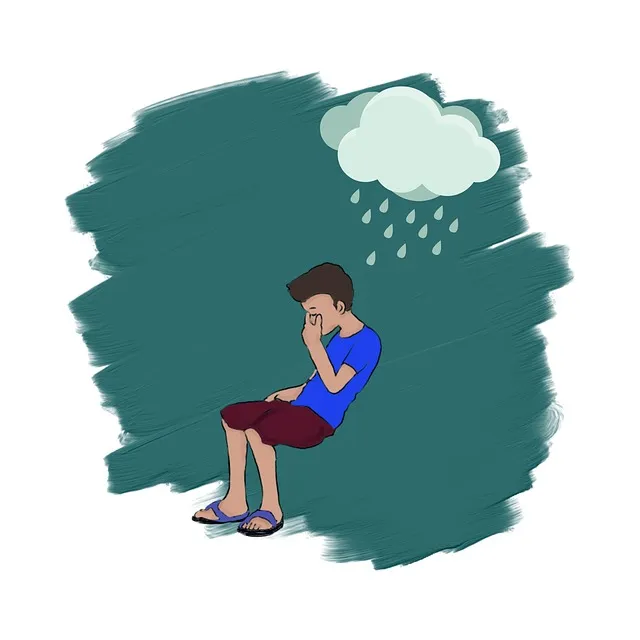Kaiser Permanente Norcal Lafayette offers powerful mental wellness group facilitation, combining safe spaces, evidence-based practices, and active listening to empower individuals with coping strategies, self-awareness, and resilience. Their holistic approach includes clinical services, community engagement, and a dedicated mental health phone line (Kaiser Permanente mental health phone number Norcal Lafayette), fostering open conversations and reducing stigma around mental illness. Facilitators create inclusive environments through clear boundaries, empathy, compassion cultivation, and mindfulness exercises, ensuring participants feel supported to navigate challenges and experience positive transformations in their lives.
Mental wellness group facilitation plays a crucial role in supporting community well-being, especially through organizations like Kaiser Permanente Norcal Lafayette. This article explores effective techniques for facilitators, focusing on understanding mental wellness dynamics within group settings. We delve into strategies to create safe and inclusive environments, enhance engagement, and foster meaningful interactions. Additionally, we highlight Kaiser Permanente’s role in community support via their mental health phone number, emphasizing the importance of accessible resources.
- Understanding Mental Wellness Group Facilitation
- Kaiser Permanente's Role in Community Support
- Effective Communication Strategies for Facilitators
- Creating a Safe and Inclusive Environment
- Techniques to Enhance Group Engagement and Interaction
Understanding Mental Wellness Group Facilitation

Mental wellness group facilitation is a specialized skill that involves guiding and supporting individuals through a shared journey of healing and growth. It’s about creating a safe, inclusive space where participants can connect, share experiences, and learn from one another. This approach recognizes the power of collective support in addressing mental health challenges. By facilitating these groups, professionals like those at Kaiser Permanente Norcal Lafayette help individuals develop coping strategies, enhance self-awareness, and build resilience—all crucial aspects of maintaining well-being.
In a group setting, participants benefit from the shared experience and understanding that they are not alone in their struggles. Techniques such as active listening, open-ended questioning, and structured activities foster engaging discussions and encourage personal reflection. Moreover, integrating evidence-based practices like Stress Management Workshops Organization, Self-Awareness Exercises, and Confidence Boosting can significantly enhance the group’s impact. These strategies enable participants to gain valuable insights, develop new perspectives, and cultivate positive changes in their lives.
Kaiser Permanente's Role in Community Support

Kaiser Permanente, a leading healthcare provider in Northern California, plays a pivotal role in supporting community mental wellness through various initiatives. Their dedicated team offers not just clinical services but also facilitates group sessions aimed at fostering resilience and reducing the stigma associated with mental illness. The organization’s focus on community engagement is evident through programs designed to enhance public awareness campaigns and development of effective coping strategies.
One notable aspect is their accessibility, including a mental health phone line that connects individuals in need with professionals. This resource, along with groups in Lafayette and other areas, ensures that residents have easy access to support. Kaiser Permanente’s holistic approach, combining healthcare expertise with community outreach, contributes significantly to the overall well-being of Northern California residents, promoting open conversations about mental health and encouraging participation in resilience-building activities.
Effective Communication Strategies for Facilitators

Effective communication is a cornerstone for facilitators leading mental wellness groups, especially when considering resources like the Kaiser Permanente mental health phone number Norcal Lafayette provides. Facilitators must cultivate an open and non-judgmental environment where participants feel comfortable expressing their thoughts and emotions. Active listening becomes a powerful tool; it involves giving full attention to each speaker, paraphrasing their sentiments, and asking clarifying questions. This technique not only ensures understanding but also validates each individual’s experience, fostering a sense of belonging.
Additionally, facilitators can enhance communication by incorporating emotional regulation strategies such as mindfulness meditation. By guiding the group through brief moments of mindfulness, participants learn to recognize and manage their emotions effectively. This practice can significantly contribute to the overall emotional healing processes within the group setting, creating a safe space for personal growth and transformation.
Creating a Safe and Inclusive Environment

Creating a safe and inclusive environment is paramount when facilitating mental wellness groups. It’s not just about ensuring physical safety; it’s cultivating an atmosphere where every participant feels seen, heard, and respected. This begins with establishing clear boundaries and expectations from the outset, using techniques like active listening to demonstrate empathy building strategies. By creating a non-judgmental space, facilitators encourage openness and foster meaningful connections among group members.
In the spirit of compassion cultivation practices, facilitators should model and promote kindness, understanding, and acceptance. Incorporating stress reduction methods through mindfulness exercises or guided meditations can help participants regulate their emotions and foster a sense of calm within the group. Using the Kaiser Permanente mental health phone number Norcal Lafayette as a resource, facilitators can also connect individuals with specialized support when needed, ensuring that every member has access to comprehensive mental wellness care.
Techniques to Enhance Group Engagement and Interaction

To enhance group engagement and interaction in mental wellness settings, facilitators can employ a variety of techniques. One effective approach is to create a safe and supportive environment where every member feels heard and valued. This can be achieved through ice-breaker activities that foster familiarity and trust, encouraging participants to share their experiences and perspectives openly. Techniques such as active listening and reflective practices help build a sense of community within the group, promoting deeper connections and meaningful conversations.
Additionally, incorporating interactive activities like mindfulness meditation and stress management exercises can significantly boost engagement. Facilitators can guide the group through simple breathing exercises or short mindfulness meditations to promote relaxation and present-moment awareness. These practices not only enhance mental wellness but also foster a sense of calm and focus, making discussions more productive. Incorporating burnout prevention strategies for healthcare providers is also crucial, as it addresses the unique challenges faced by those working in high-pressure environments, like the Kaiser Permanente mental health phone number Norcal Lafayette services.
Mental wellness group facilitation plays a pivotal role in fostering community support, as exemplified by Kaiser Permanente’s initiatives in Norcal, particularly through their Lafayette-based services. By understanding effective communication strategies and creating safe, inclusive environments, facilitators can enhance group engagement and interaction. Utilizing techniques discussed in this article, professionals can better navigate mental health discussions, ultimately revolutionizing care and improving outcomes for those seeking support. For more resources, individuals can reach out to the Kaiser Permanente mental health phone number for Norcal to access comprehensive services tailored to their needs.






